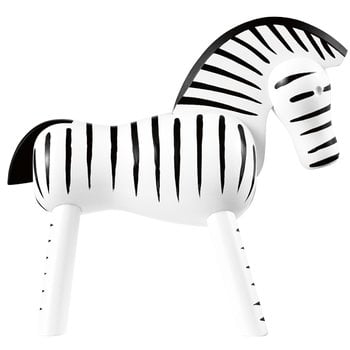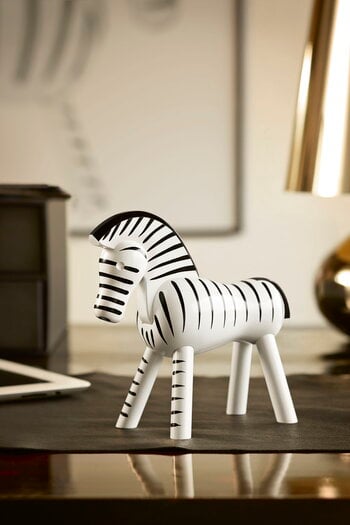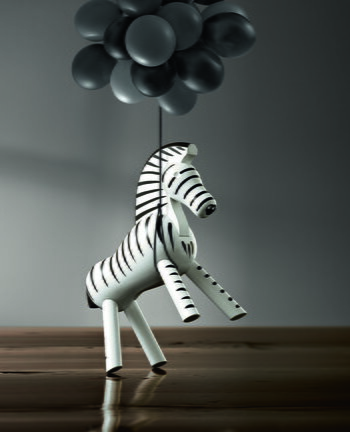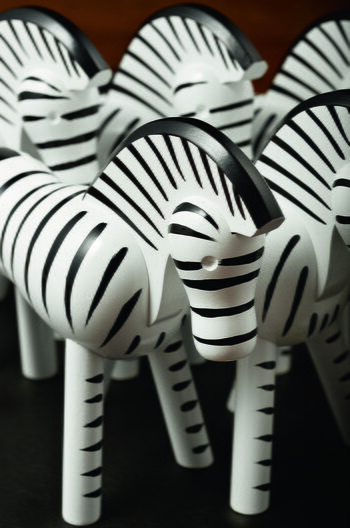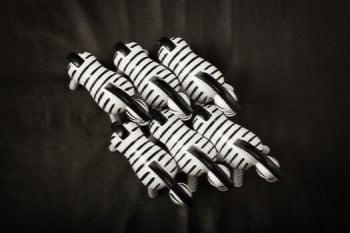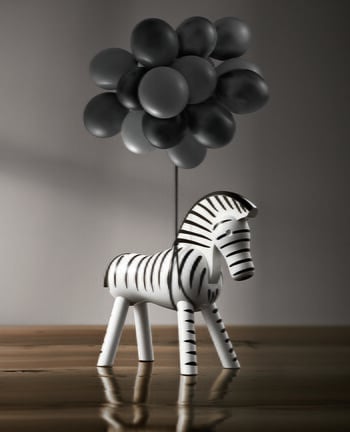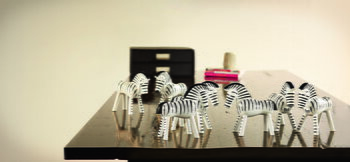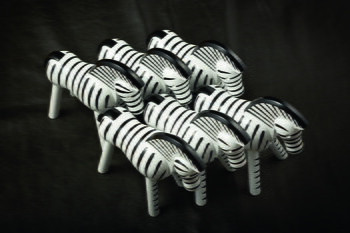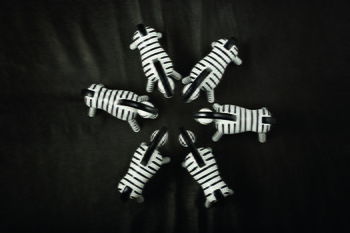The Zebra figurine by Kay Bojesen was created already in the 1930’s. Made out of solid beech, the figurine is hand-painted. It is a fun additon to any interior.
Zebra
Kay Bojesen Denmark
Description
The Zebra figurine by Kay Bojesen was created already in the 1930’s. Made out of solid beech, the figurine is hand-painted. It is a fun additon to any interior.
Product details (3)
- Material
- Hand-painted beech
- Colour
- Black, white
- Height
- 14 cm
- Product ID
Designer
Kay Bojesen (1886-1958) is one of the most important pioneers of Danish design. Trained as a silversmith at the Georg Jensen workshop, he designed several products in silver, such as cutlery and serving dishes, including his famous Grand Prix cutlery. Kay Bojesen worked with other materials as well and was particularly interested of exploring the possibilities of wood.
Read moreReviews (0)
Sustainability
The Product Sustainability Framework, our criteria of sustainable design, helps you find the most sustainable products in our selection. Read below which sustainability criteria this product has met.
Working conditions & labour 8/9
-
Equal opportunities for all employees
-
Commitment to UN Global Compact, fair compensation for all employees
-
Corporate responsibility requirements defined and communicated for suppliers
-
Systematic work for improved inclusion and well-being in the workplace
-
Transparent supply chain
-
Suppliers' compliance to a code of conduct ensured
-
Direct suppliers audited and certified
-
Compliance to the UN Guiding Principles on Business and Human Rights ensured in the supply chain
Eco-friendly production 6/9
-
Fair and resource-wise water-use in production
-
No incineration or landfilling of returned items
-
No use of endangered species as materials
-
No direct environmental emissions or waste (excl. GHGs) from production
-
Material-efficient and ecological packaging
-
No potentially harmful chemicals used in own production
Climate impact 5/8
-
Company's direct greenhouse gas emissions identified and commitment to reduction
-
Product's carbon impact identified and commitment to reduction
-
Guidance on energy- and eco-efficient use of the product
-
Low-carbon or compensated transportation
-
100 % renewable energy in own production and operations
Sustainable materials 5/6
-
Sustainable and long-lasting material choices
-
No harmful or hazardous substances
-
Responsible raw material sourcing and production
-
Materials suited for circularity: monomaterials, recyclable finishings, renewable or recycled contents etc.
-
Ecological materials: natural, biodegradable, recyclable or recycled contents
Circular design 4/5
-
High aesthetic quality promoting long-term use of the product
-
Technically durable product design and material choices
-
Design for enduring life-long quality
-
Design and support for product maintenance, repair and upgradability

